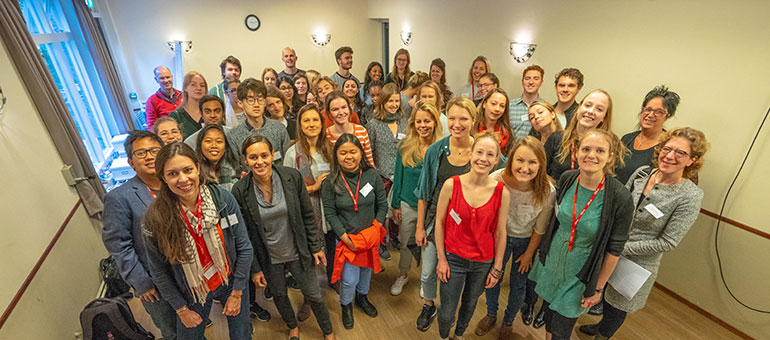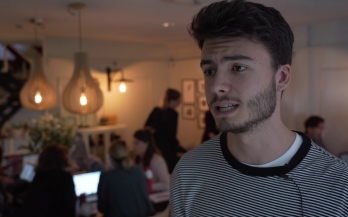On 28 and 29 September 2018, the Global Alliance for Improved Nutrition (GAIN) Netherlands office organised GAIN’s first student challenge. In small teams, more than 40 students from 10 Dutch universities, with 15 nationalities and more than 20 different academic backgrounds competed against each other to come up with creative ideas to be implemented in one of GAIN’s current projects.
Organising a ‘student challenge’ has become a trend in numerous places around the world – many universities and civil society organisations use this type of event to actively involve young people in a current, problematic topic. Student challenges can come in various formats – sometimes they last over the course of a few months, some take days, and others only a few hours. A prize often gives an incentive to participate in such a challenge. But apart from this extrinsic motivation, it is also the experience itself which can be rewarding: to learn more about a complex and meaningful issue; to make linkages between theory, one’s personal and professional background, and a real-life case; to engage in an intense problem-solving process; and to put forward a creative solution in collaboration with a team.
It is easy to see why students would take the opportunity to participate in a student challenge. But what is in it for an organising party such as GAIN? To me, there are five main reasons why we should continue organising such events.

Student challenge participants, The Netherlands, October 2018
First of all, involving students creates awareness about GAIN’s work on food and nutrition. These young and bright minds are a fantastic platform when drawing attention to the global issue of malnutrition. Sharing the urgency and complexity of the problem with future professionals is an important step in fighting malnutrition. After all, they are part of the next generation of researchers, business associates, political and community leaders who can bring about change.
Second, in only a short time, GAIN received a set of new and innovative solutions addressing the issue of malnutrition from multiple angles. With students from different nationalities and educational backgrounds the problem is screened through various viewpoints. This resonates with GAIN’s belief that malnutrition cannot be solved by one sector alone, but can be ended within our lifetime only if there is cooperation between different sectors. In the end, in a food system, what is grown and what is eaten depends on a multitude of contextual factors, such as laws and regulations, development policies, agriculture, food technology, logistics and consumer behaviour. We therefore need people from all fields and contexts to improve food systems, so that healthier food choices can become more affordable, more available, and more desirable.
A third benefit of organising a student challenge is that it fosters relationships between GAIN and universities. While the event was promoted through their networks, some universities even helped with the selection of students for our student challenge. We also had the honour of working with university lecturers during the student challenge who accompanied the teams in their creative problem-solving process.
The fourth advantage of a student challenge is that it brings us, practitioners, an opportunity to self-reflect on WHY we do what we do. Preparing for this event and presenting our work to students and professionals from different fields of study allows us to stand still and think about how our daily activities contribute to GAIN’s mission and the broader international development agenda.
Last but not least, a student challenge gives us, GAIN staff, a burst of energy. There is nothing more motivating than being able to share what we do with young people and to inspire and encourage them to think about food systems and nutrition.
The GAIN student challenge 2018 has shown how inspirational it can be to include young, creative and eager minds into GAIN’s work. So why shouldn’t GAIN take this idea one step further and engage with students more structurally? Not only through internships, but also by organising student challenges in other GAIN countries, or even consulting students when designing new projects and programmes?
Videos
